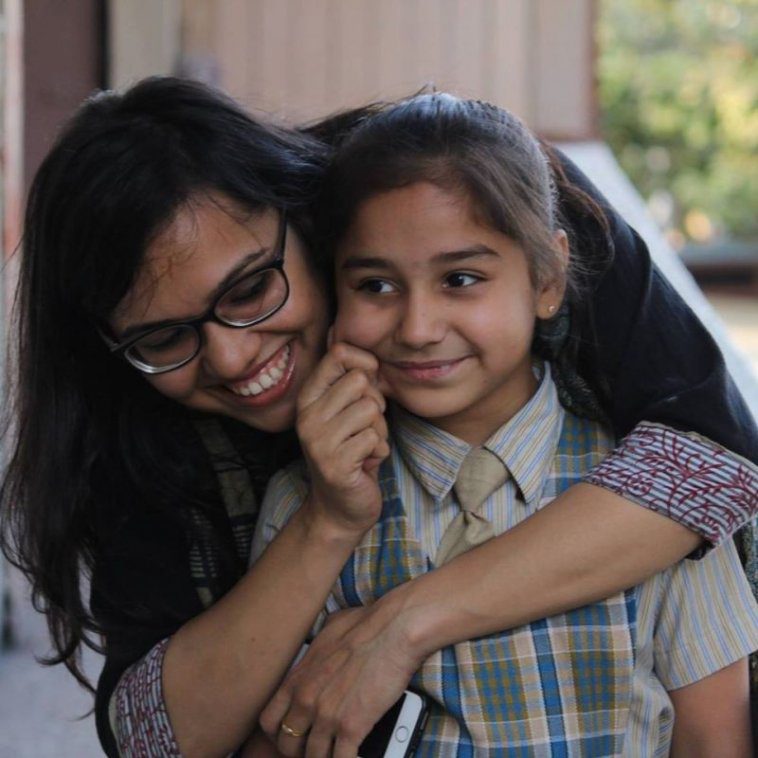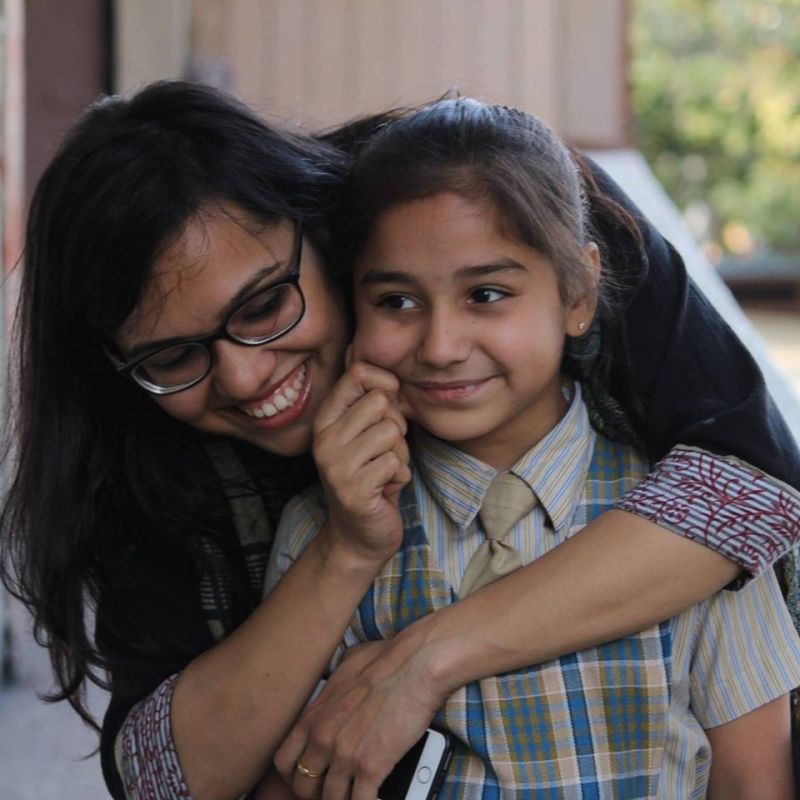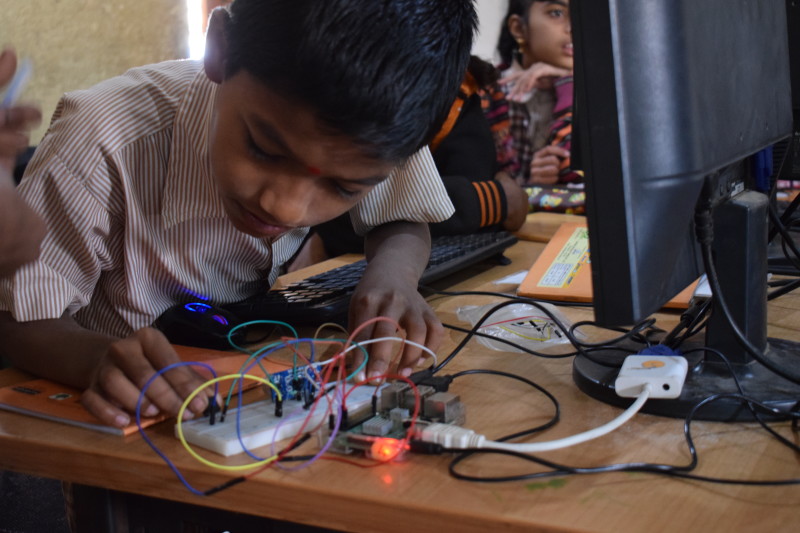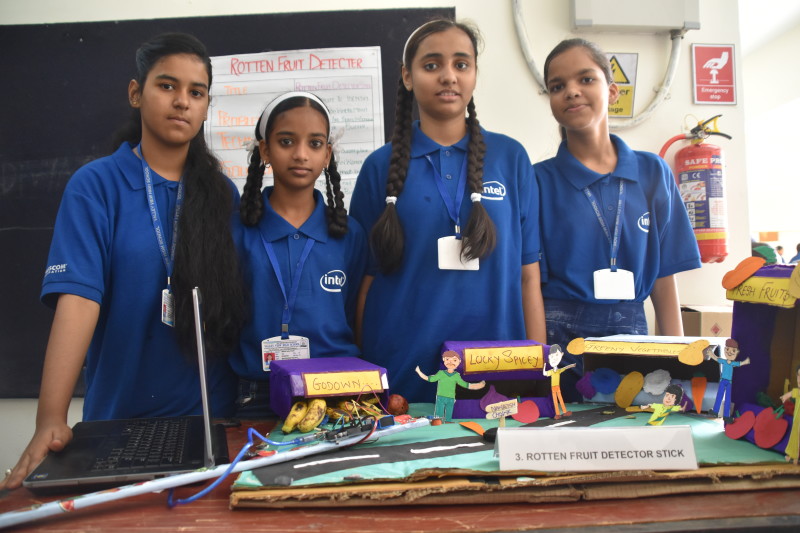Like a few educators in the Raspberry Pi and digital making community, Pranjali Pathak of The Pi Jam Foundation started out life as an engineer before becoming a teacher. She’s been a fellow for Teach for India, where she taught students from grade 3, and brought that experience to the Pi Jam Foundation as a program lead, making sure educators are supported when teaching computing.
“Pi Jam Foundation is a Section 8 (not-for-profit) organisation,” Pranjali tells us. “The organisation is entirely impact driven and aims to provide all students from under-resourced schools [with] computing and problem-solving skills, which are essential for them to succeed in the 21st century workplace.
“Using low-cost, open-source technology, Raspberry Pi and a contextual research-based curriculum coupled with innovative pedagogy, Pi Jam Foundation aims to provide quality computer education to over 100,000 students across India by 2022″, Pranjali explains.
“We have successfully brought a globally relevant, yet contextual computer science education to 8000+ students across under-resourced schools across urban, suburban, and rural geographies of the country.”
What are your links to Raspberry Pi?
We work extensively on Raspberry Pi [computers] across all our Pi Lab programs and feel the Code Clubs would enable us to enhance our curriculum and provide students from different grades and diverse economic backgrounds access to knowledge at par with global standards. Also, being [more] affordable than existing PCs in the market lends itself to use in the context we operate in, i.e. under-resourced public schools.
What kind of events have you put on or supported?
Pi Lab is an award-winning flagship programme that enables a complete computer science ecosystem (Raspberry Pi, best of open-source tools, and highly contextualised curriculum and teacher training programmes) that ensures year-long learning and allows kids to explore, tinker, and create. Currently, Pi Jam is impacting 8000+ number of students through 40 Pi Labs across […] the country.
The Pi Labs, especially the ones in under-resourced schools, have been places of immense transformation of thought and possibility for our students. They have seen technology and computer science as something the more privileged classes had access to, and using Raspberry Pi [computers] has helped us give them the same (if not a more focused and holistic) access.
We see career possibilities change as they experience the true creativity behind technology, and have even encountered them sharing with us that they always assumed technology to be boring, but the Code Clubs were very exciting for them to be a part of.
Every February Pi Jam holds an annual showcase known as Makers Factory. Our students are provided with a platform to present their solutions in the form of technology prototypes to problems identified by them.
We also hold hackathons for students, members of the community, mothers of the Pi Lab students, [and] individuals from corporates.
Who attends these events?
The students hail from communities that have a rich mix of people from different cultures, beliefs, and languages. A lack of resources and rampant poverty unite residents of this locality. Most of the communities are home to tens of thousands of children, many of whom lack access to good quality education.
All the students come from low income households, and a majority of their parents are first-generation migrants from other states. Additionally, most of the students do not have any formal knowledge or prior experience to computers across these schools.
Pi Jam projects
Rotten fruit detector
Rukaiya’s parents were fruit and veg sellers; however, a problem with the vendor meant some fruit was rotting and affecting the rest of the supply. Unable to inspect the boxes by eye, Rukaiya created a rotten fruit detector using a stick with an MQ3 sensor (which detects alcohol gas) on the end. This would smell any rotting fruit in the box.
Open manhole alert
During the monsoon season it’s not uncommon for autos (motorised rickshaws) to get stuck in manholes. Several students had to abandon a taxi auto at the urge of their driver and felt bad for him, so decided to create a system that warned the driver in the future of open manholes in the road ahead. It’s incredibly accurate and can even detect a manhole that is slightly tilted open.





